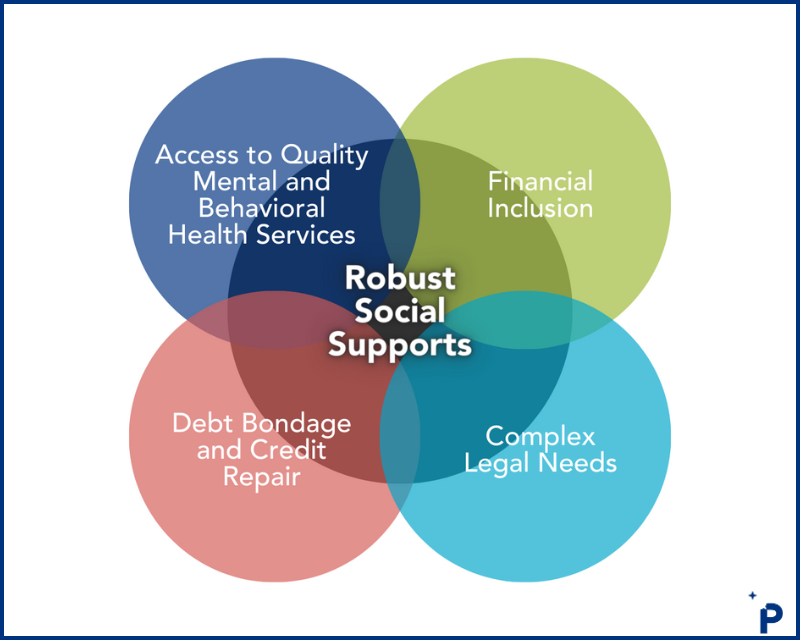
Policy change takes time and collective effort — and when we reach our goals, it’s important to celebrate milestones and keep the momentum going. In that spirit, this blog is one of a three-part series on recent wins across the country, as states introduce and improve laws that prevent exploitation, support survivors, and hold traffickers accountable.
Polaris has played our part in these successes, sitting on local coalitions, providing testimony, writing letters, and filing slips in support of survivor-centered policies. But this work needs all partners at the table to be successful — and we invite you to join the movement.
**********
Helping survivors with criminal records avoid further exploitation is an ongoing policy priority for Polaris and the anti-trafficking sector. In our recent National Survivor Study:
- 42% of survivors reported having a criminal record.
- 90% of those with a criminal record reported that some or all of their arrests were related to their exploitation.
- Criminal records prevented survivors from getting or keeping a job (69%); getting training, education, or a professional license (63%); getting good housing (59%); and maintaining custody of their children (35% of those with children).
To tackle this barrier at a policy level, Polaris has published two rounds of report cards grading all 50 states and D.C. on their laws enabling survivors to clear criminal records. The latest edition highlights significant progress, plus recommendations for further improvement.
Sign up to learn more about human trafficking and how you can help
And states are taking action. Several recently passed laws strengthening access to criminal records relief for survivors:
- Illinois has created a pathway for survivors to petition for vacatur, expungement, or immediate sealing of criminal records. It also allows them to attend hearings remotely and file petitions under seal to support healing and prevent future victimization. Notably, the legislator who introduced the bill credited Polaris for raising awareness about the challenges survivors with criminal records face.
- Last year, Louisiana passed the “Michelle Johnson Act,” creating an expungement process for survivors of all ages with no application fees. It is also one of the first states to require district attorneys to report how many survivors are applying for relief and how many requests are accepted or denied.
- Two new laws in Maine aim to reduce overcriminalization of victims and survivors, plus ensure they can rebuild their lives. One provision seals records of prostitution arrests and convictions, preventing discrimination against survivors in housing or employment.
- And in Florida, a new law signed in May exempts survivors’ petitions for expungement from public records laws. This step makes it easier to seek relief and preserves survivors’ privacy and safety.
How can you help? Check out Polaris’s report cards to learn what still needs to be done in your state. And join in the nationwide effort to pass federal criminal record relief for survivors.
Stop human trafficking today
Help fix the broken systems that make trafficking possible so we can prevent it from happening in the first place.



